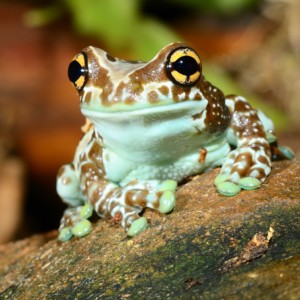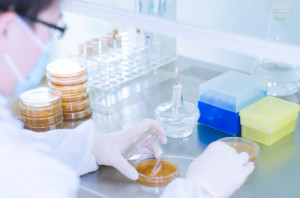
Biological science focuses mostly on the development and composition of living organisms and the environment. What can you do with a degree in biological science? You will find the answer to that question and more in this article. From specific categories of biological science to schools with reputable biological science programs to career options in biological science, you are sure to gain a basic understanding of biological science and ways in which you can apply the knowledge gained as a biological science major to everyday life.
Categories of Biological Science
According to UCMerced, biological science is composed of five major groups. These groups are listed and briefly described here.
Human biology – study of human physiology, often focuses on medicine
Developmental biology – study of the development and growth of living organisms
Molecular and cell biology – study of specific the cells and molecules of living organisms, often involving biochemistry
Microbiology and immunology – study of how microbes interact and connect with living beings and the environment
Ecology and evolutionary biology – study of environmental protection techniques and the origins and developments of various species
How to Get a Degree in Biological Science
In order to get a degree in some form of the biological sciences, you need to research accredited universities and colleges to determine which schools offer the science programs that best fit your future career goals. You should keep in mind the type of biological science you plan to explore upon graduation when you’re considering which colleges fit your needs. Always apply to multiple schools, and the best time to apply is early in your senior year of high school.
The University of Nebraska’s Lincoln campus houses its School of Biological Sciences that introduces undergraduate students to a broad education that covers multiple life sciences. This university prepares both undergraduate and graduate students for jobs in biomedical research, government science, marine biology, physical therapy, medicine, and more.
The University of Toronto’s Department of Biological Sciences allows students to focus their studies in areas like conservation and biodiversity, human biology, integrative biology, and more in order to prepare them for their desired careers. Students can learn how to effectively manage natural resources and learn the latest medical techniques among participating in other areas of interest. It offers excellent opportunities for biological research in order to boost students’ experiences in their specific fields, as well, for both undergraduate and graduate students.
Washington State University’s School of Biological Sciences offers undergraduates the opportunity to major in subjects like biology and zoology in order to prepare them for graduate programs to earn their master degrees in everything from zoology to botany. At this public research university, students can take courses to prepare themselves for careers in physical therapy, biology, and other related fields. The school also offers research opportunities to work alongside experienced faculty in order to build their own personal experience levels before entering the working world of biological science.
Careers in Biological Science
So after all this, are you still wondering what exactly you can do with a degree in biological science? Upon graduating from a higher education facility, whether you’ve earned a bachelors degree, masters degree, or doctoral degree in biological science, many career options will become available to you. When you spend considerably more time working in your field, you will also increase the number of jobs for which you qualify.
Entry Level Careers in Biological Science
Once you earn a bachelors degree in a specific biological science, you will be able to land some of the jobs listed here and others.
Biological Technician

Biological technicians can help either biologists or medical scientists with their research in laboratories around the world. They spend much of their time preparing equipment for experiments and assist in the cleanup after experiments are completed or when specific lab equipment is no longer needed. They have excellent communication skills as well as bachelor degrees in various fields of biological science.
Biological technicians can earn around $38,000 annually.
Wetland Scientist
Entry level wetland scientists can begin their job with very little experience as long as they have a bachelors degree in ecology or another relevant biological science. Job duties for beginners include but are not limited to learning how to perform field surveys and gather requested data, aid in the preparation of written reports, and enter gathered data into designated databases. Experience with the use of word processors and databases is desirable, as are above average written and verbal communication skills and the ability to participate in teamwork in the field.
Entry level wetland scientists with little to know experience can expect to earn around $39,000 annually and have the potential for a raise with increased experience.
Food technologist
Food technologists often create recipes for new food and/or beverage products and alter existing foods to enhance their appeal to consumers, whether they add additional flavoring or change the physical appearance of products. Food technologists have a degree in food science and are talented in the field of research. They also possess good communication and analysis skills.
Food technologists can earn around $47,000 annually.
Advanced Careers in Biological Science
With enough experience and/or a masters degree or doctoral degree in biological science, you may qualify for all or some of the following positions in addition to others not listed here.
Product Safety Specialist
Product safety specialists help develop new care products or medicines and make sure that these new products as well as preexisting products follow safety rules and regulations set by the government. Although this position doesn’t necessarily require a masters degree, it is highly advised that applicants for a position as a product safety specialist possess a masters degree in biochemistry or another specific biological science in order to best perform necessary duties. It is often required that applicants have at least 3 years of experience in medical terminology as well as in the field of personal care products or pharmaceuticals, for example.
Product safety specialists can earn around $55,000 annually but will vary based on education and experience levels.
Medical Science Liaison
Medical science liaisons communicate between consumers and operations departments in order to provide consumers with quality assurance and address any issues that may arise for either side. They also occasionally assist in the research process and the development and presentation of test results. For these reasons, medical science liaisons possess outstanding verbal and written communications including talent in negotiating and mediating. They possess master degrees or doctoral degrees in biological science or the field of pharmaceuticals with experience in the specific field of interest.
Medical science liaisons can earn around $60,000 to over $100,000 annually.
Fermentation Microbiologist
Fermentation microbiologists spend most of their time in research laboratories studying microscopic organisms such as yeasts and fungi in order to determine if and how they should be used in food processing. They often focus their studies on the composition and creation of different beers and cheeses among other food products. These microbiologists typically possess master degrees or doctoral degrees in anything from food science to microbiology or another related biological science. High communication and analysis skills are necessary to carry out job responsibilities.
Fermentation microbiologists can earn around $63,000 annually.
Companies that Hire People with Biological Science Degrees
Jobs for people with biological science degrees are available all over the globe, it’s just a matter of finding them. Below is a list of just a few examples of companies that often look for people with degrees in a biological science.
Ulthera – locations throughout the U.S.; medical technology company specializing in ultrasound technology; hires positions for medical science liaisons, supply chain procurement managers and assistants, quality assurance engineers, etc.
Kao Brands Company– based in Cincinnati, OH, with locations across the world; manufacturer of beauty care products and brands; hires positions for marketing assistants, customer business managers, hair care scientists, product safety specialists, etc.
Novozymes – headquarters in Denmark with locations around the world; offers solutions in biotechnology; hires positions for fermentation scientists, laboratory assistants, entomologists, research assistants, etc.
ACADIA Pharmaceuticals Inc. – located in San Diego, CA; biopharmaceutical company developing and commercializing neurological medicines and more; hires positions for medical science liaisons, technical writers, quality systems managers, etc.
Because the field of biological science is so large, it is important for you to focus on what most interests you in order for you to reach your career goals. Apply to multiple schools, research different career possibilities, and earn an education to get you where you want to go in life.



Pingback: Unusual Career Options For Biology Majors | strategicinsight.org